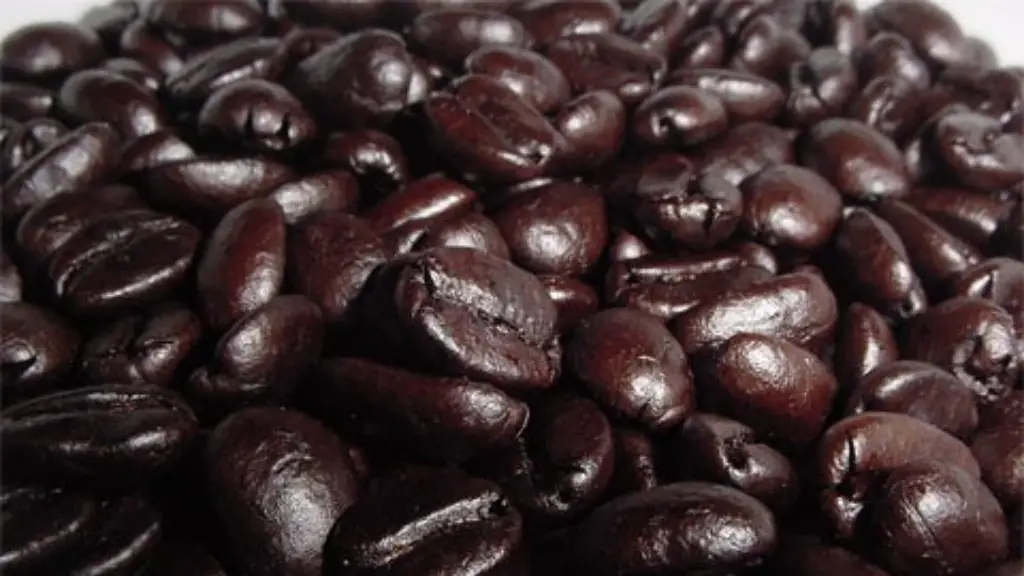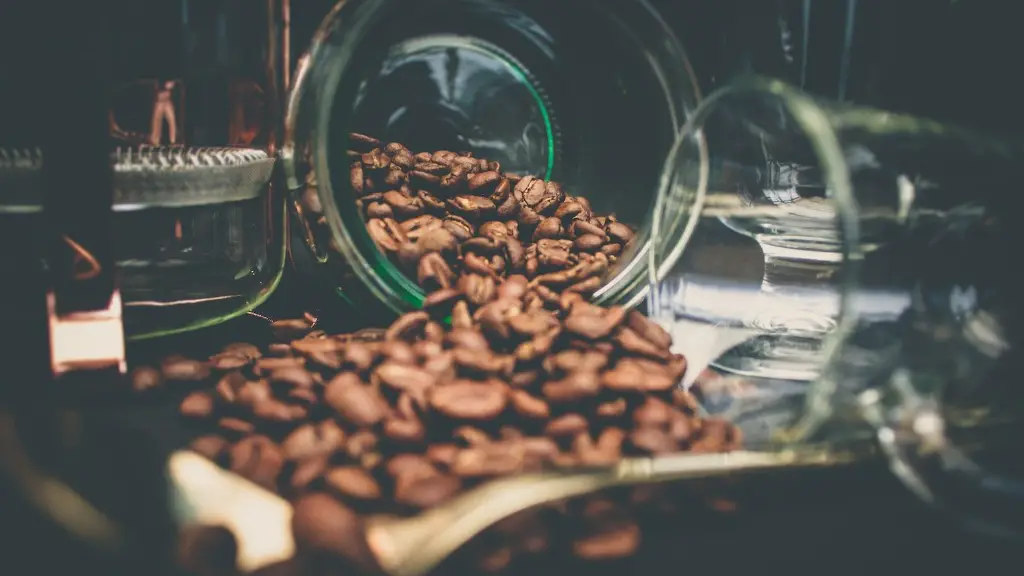When pregnant, it is important to consider how much decaf coffee to drink. Decaf coffee still contains some caffeine, and it is important to monitor how much caffeine you consume when pregnant. Knowing the amount of decaf coffee that is safe for you to drink can help ensure your health and that of your baby.
It is generally recommended that pregnant women consume no more than 200mg of caffeine per day. That equates to one cup of regular brewed coffee or two cups of decaffeinated brewed coffee. While decaffeinated coffee may contain less caffeine than regular coffee, it still has some caffeine and it’s best not to exceed the recommended amount.
It’s also important to remember that other sources of caffeine can add up quickly. Beverages such as soda, energy drinks, and even tea all contain varying amounts of caffeine that should be taken into account when calculating your daily intake.
In short, pregnant women should limit their consumption of decaffeinated coffee to two cups per day or less and make sure to consider other sources of caffeine when monitoring their intake.
Potential Health Risks of Consuming Caffeine During Pregnancy
Caffeine is a stimulant found in many foods and beverages, including coffee, tea, and chocolate. While it is generally safe to consume small amounts of caffeine during pregnancy, it is important to be aware of the potential health risks that can be associated with excessive consumption. Studies have suggested that high levels of caffeine may increase the risk of miscarriage, preterm birth, low birth weight, and other complications. It is recommended that pregnant women limit their caffeine intake to less than 200 mg per day.
When it comes to decaf coffee specifically, research suggests that pregnant women may still need to practice moderation. Decaf coffee contains very low levels of caffeine, but depending on the brand it can still contain some trace amounts. To be on the safe side, many healthcare professionals recommend limiting consumption of decaf coffee to no more than one cup per day during pregnancy.
How Much Caffeine Is in Decaf Coffee?
Decaf coffee is a popular choice for those who want the flavor of coffee without the caffeine content. Generally, decaffeinated coffee contains less than 2 mg of caffeine per 8-ounce cup, which is significantly lower than the average 95-200 mg of caffeine found in regular brewed coffee. However, it’s important to note that this amount can vary depending on the brand and type of decaf you choose. Therefore, it’s best to check the label to be sure you’re drinking a low-caffeine variety.
When it comes to pregnant women, it’s usually recommended to limit daily caffeine intake to 200mg or less. This means that pregnant women can typically have up to two 8-ounce cups of decaf per day without exceeding their daily limit. It’s also important to note that while decaf may contain less caffeine than regular coffee, some brands still contain trace amounts of caffeine that could add up over time if not monitored carefully. Therefore, if you’re pregnant and looking for a safe option, consider sticking with naturally caffeine-free beverages such as herbal teas and water.
Pros and Cons of Drinking Decaf Coffee During Pregnancy
Decaf coffee is generally safe to drink during pregnancy, as long as it is consumed in moderation. While decaffeinated coffee has been shown to have fewer risks than regular coffee, it still contains some caffeine. Therefore, pregnant women should limit their intake of decaf coffee to no more than two cups per day.
One of the main advantages of drinking decaf coffee while pregnant is that it contains significantly less caffeine than regular coffee. This may help reduce the risk of complications associated with an excessive intake of caffeine during pregnancy, such as high blood pressure and a decrease in fetal growth. Additionally, decaf coffee can provide a source of antioxidants, which may have some beneficial effects on the health and wellbeing of the mother and baby.
However, there are also potential drawbacks to drinking decaf coffee while pregnant. For example, it may have an effect on iron absorption from food sources, which could lead to a deficiency in iron during pregnancy. Additionally, there is some evidence that decaffeinated beverages may contain higher levels of acrylamide than regular coffees – a potentially toxic chemical compound.
In conclusion, drinking decaf coffee during pregnancy can be beneficial in certain circumstances – however women should always consult with their healthcare provider before consuming any caffeinated beverage while pregnant. It is also important to remember that even though decaf coffee has less caffeine than regular coffee, it should still be consumed in moderation.
Is Decaffeinated Coffee Safe for Pregnant Women?
Decaffeinated coffee is generally considered safe for pregnant women. However, it is best to limit your intake to no more than two cups of decaf coffee per day. Excessive caffeine can be harmful to the developing baby, so it is important to be mindful of how much decaf coffee you are drinking. It is also important to note that decaffeinated coffee still contains a small amount of caffeine, so it is still not recommended to drink in large amounts.
It’s also important to remember that most other beverages such as tea, energy drinks, and soda contain caffeine as well, so it is best to limit these as well. Other alternatives such as herbal tea or water can be helpful if you are looking for something warm or flavorful without the caffeine.
Overall, pregnant women should err on the side of caution when consuming any type of caffeinated beverage and stick with decaffeinated coffee in limited amounts. Doing so will help ensure a healthy pregnancy for both mother and baby.
Alternatives to Caffeinated Beverages While Pregnant
For pregnant women, limiting or avoiding caffeine is one way to help ensure a healthy pregnancy. Although it can be difficult to give up your favorite caffeinated beverages, there are plenty of alternatives that can help satisfy your craving for something tasty. Decaf coffee can be a great option for those who still want to enjoy the taste of coffee without the stimulant effects of caffeine. Generally, it is safe to consume up to 200 milligrams (mg) of decaf coffee per day while pregnant. Other great alternatives include herbal teas, sparkling water with a splash of juice, milk-based smoothies with fruit and honey, and fresh fruit juices.
In addition to these options, there are also many non-caffeinated drinks that provide a similar taste and texture as your favorite caffeinated drinks. For instance, if you love the flavor of soda but want to avoid caffeine, you can try soda water with added natural flavors, such as lemon or lime juice. You can also find various brands of all-natural energy drinks that contain no caffeine but still provide a boost of energy from natural ingredients like guarana and ginseng.
Caffeine Intake During Pregnancy
The American College of Obstetricians and Gynecologists recommends limiting caffeine intake during pregnancy. It is recommended to limit daily caffeine intake to less than 200 mg, which is equivalent to one 12-ounce cup of coffee. Decaffeinated coffee can be consumed, but it should be noted that some decaffeinated products may also contain caffeine. It is important for pregnant women to be aware of the amount of caffeine they are consuming from all sources, including tea, soda, and even chocolate.
It is important to discuss any questions or concerns with a healthcare provider regarding caffeine consumption during pregnancy. The potential risks associated with caffeine consumption can vary depending on the individual and the amount consumed. Caffeine has been linked to an increased risk of miscarriage, low birth weight, and preterm birth. Therefore, it is best for pregnant women to consume no more than one 12-ounce cup of decaf coffee per day.
To Sum it All Up
Pregnant women can safely drink up to 200 mg of caffeine per day, which is equivalent to one to two 8-ounce cups of decaf coffee. It is important to keep in mind that the caffeine content of decaffeinated coffee varies significantly from brand to brand, so it is best for pregnant women to consult their healthcare provider for more information. It is also important to limit the intake of other caffeinated beverages, such as sodas, tea and chocolate. Overall, moderate consumption of decaf coffee during pregnancy appears to be safe for both mother and baby.





